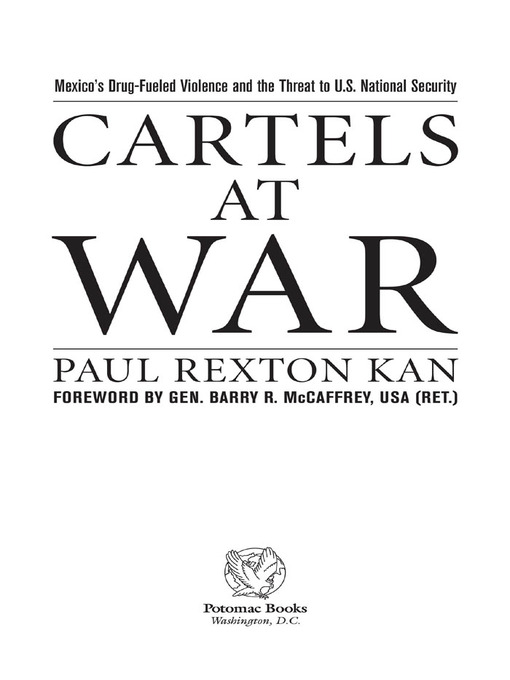Beyond border control. Now in its sixth year, the conflict in Mexico is a mosaic of several wars occurring at once: cartels battle one another, cartels suffer violence within their own organizations, cartels fight against the Mexican state, cartels and gangs wage war against the Mexican people, and gangs combat gangs. The war has killed more than 60,000 people since President Felipe Caldern began cracking down on the cartels in December 2006. The targets of the violence have been wide-rangingfrom police officers to journalists, from clinics to discos.Governments on either side of the U.S.-Mexican border have been unable to control the violence. The war has spilled over into American cities and affects domestic policy issues ranging from immigration to gun control, making the border the nexus of national security and public safety concerns.Drawing on fieldwork along the border and interviews with officials at the Drug Enforcement Administration, the Office of National Drug Control Policy, the Department of Defense, U.S. Border Patrol, and Mexican military officers, Paul Rexton Kan argues that policy responses must be carefully calibrated to prevent stoking more cartel violence, to cut the incentives to smuggle drugs into the United States, and to stop the erosion of Mexican governmental capacity.
- Available now
- New eBook additions
- New kids additions
- New teen additions
- Most popular
- Try something different
- New Nonfiction Ebooks
- New Fiction Ebooks
- Stars Cook
- See all
- Available now
- New audiobook additions
- New kids additions
- New teen additions
- Most popular
- Try something different
- See all
- Home & Garden
- Sports
- Health & Fitness
- Hobbies & Crafts
- Food & Cooking
- Celebrity
- News & Politics
- Travel & Outdoor
- Family & Parenting
- See all

